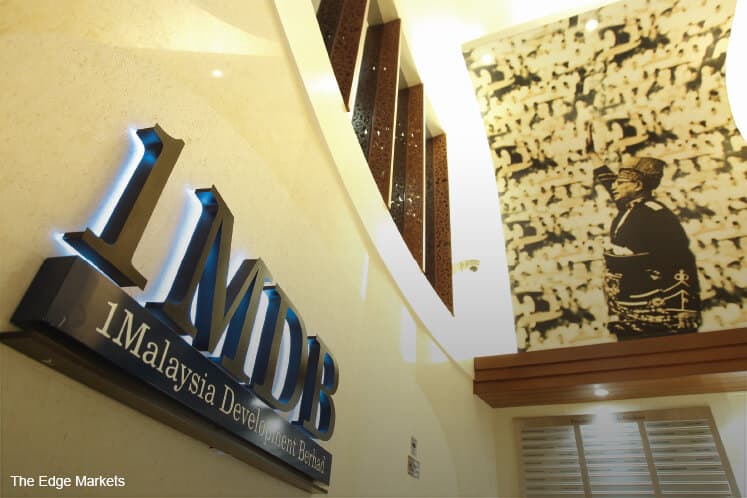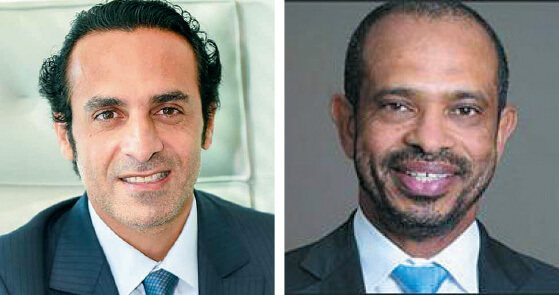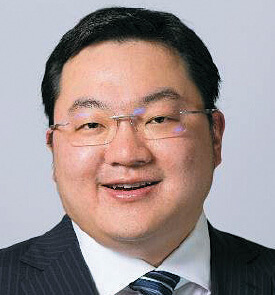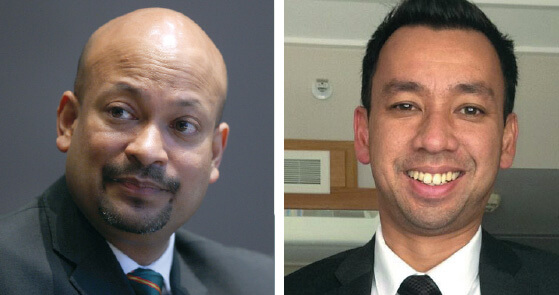
This article first appeared in The Edge Malaysia Weekly on May 1, 2017 - May 7, 2017
LAST Monday, 1Malaysia Development Bhd (1MDB) announced that it had reached a settlement with Abu Dhabi’s International Petroleum Investment Company PJSC (IPIC) over the arbitration proceedings at the London Court of International Arbitration.
Unfortunately, this may not be something to celebrate despite the spin that it was a success for Malaysia as the arbitration initiated by IPIC is no longer needed.
An official familiar with the negotiations conceded that the agreement with IPIC was conditional upon the Ministry of Finance (MoF) stepping in as a guarantor of the two bonds totalling US$3.5 billion. This effectively eases IPIC’s concern that it would be called upon again to fulfil its obligations as a co-guarantor of the two bonds issued with the help of Goldman Sachs in 2012.
The official, who briefed The Edge but asked not to be identified, explained why MoF had to step in to guarantee that 1MDB would not default on the bonds: “MoF is now involved. There is a government guarantee. It (MoF) had to stand guarantor for 1MDB with IPIC for the US$3.5 billion in debt papers that IPIC stood guarantor for, as 1MDB, after selling its assets to pare down its debts, has very little in terms of assets or security. It’s unfortunate but understandable [why this had to be done]. ”
To recap, in 2012, 1MDB issued two 10-year bonds of US$1.75 billion each to buy two power plants. The bonds were co-guaranteed by 1MDB and IPIC’s subsidiary Aabar Investment PJS (Aabar). The MoF was not a party to this guarantee.
In return, 1MDB was to pay Aabar a security deposit of US$1.37 billion as well as other payments, which brought the total amount to US$3.5 billion. IPIC has since insisted that neither it nor Aabar received any of the payments and the company that did — Aabar Investments PJS (Aabar BVI) — was not part of the group.

All the discussions and agreements made with Aabar BVI were handled by Khadem Al-Qubaisi (above left), a former managing director of IPIC who was also chairman of Aabar, and Mohamed Badawy Al-Husseiny (above right), former CEO of Aabar. Al-Qubaisi was arrested by Abu Dhabi authorities in August last year after investigations into an alleged multibillion-dollar fraud related to 1MDB was commenced.
The US Department of Justice (DoJ) has said that money was stolen from 1MDB by Aabar BVI, now dubbed the fake Aabar.
According to the official, as 1MDB was in a weak financial position with most of its hard assets such as the power plants already sold off, IPIC as co-guarantor would most certainly be called upon to make good on the bond payments. The investment company had paid US$200 million in interest payments on behalf of 1MDB in 2016 but it did not want to make any further payments, so it took the case to the arbitrators.
In a nutshell, MoF’s guarantee means that the nation’s coffers will be used to pay 1MDB’s debts should the strategic investment fund be unable to meet its debt payments in the future — which is likely, given its financial situation.
This is a reversal of the government’s previous assurances that it was insulated from the problems at 1MDB because it was not a guarantor of most of the bonds the latter had issued.
In June 2015, 1MDB said in a statement:
“It is publicly known that IPIC issued guarantees in 2012 for the payment of interest and the principal on two US$1.75 billion bonds issued by 1MDB totalling US$3.5 billion of principal and up to US$2 billion in interest. The government has not guaranteed either of these bonds.”
The controversial investment fund pointed out that the government had only issued a “letter of support” for a tranche of US$3 billion bond issued by 1MDB in 2013. (The only 1MDB bonds that had a direct government guarantee was its first bond of RM5 billion issued in 2009.)
Former deputy finance minister Datuk Ahmad Maslan told Parliament in November 2014 that the letter of support issued by the government for 1MDB’s bond papers was not at all a government guarantee.
Today, 1MDB’s US$3.5 billion debt papers are now in effect government-guaranteed bonds.
The real dispute lingers
The settlement involves the payment of US$1.2 billion — for a US$1 billion loan plus US$200 million interest — to IPIC on the US$3.5 billion that it had paid on behalf of 1MDB in 2015.
The amount will be paid in two instalments, one on July 31 and the other, Dec 31.
Also, 1MDB and MoF will assume liability for future interest and principal payments for two tranches of bonds totalling US$3.5 billion that were guaranteed by IPIC.
Now, will the settlement enable 1MDB to recover the US$3.5 billion? Unfortunately, the sum is still in dispute, just not in the arbitration arena. IPIC told the London Stock Exchange it would negotiate in “good faith” a settlement of the disputed payments.
“We still have until 2020 to solve this, so there is no rush, but it is no longer in arbitration,” said the official.
Monetisation of investment units
The official stressed that 1MDB has been able to “monetise” the fund units that it has been holding through Brazen Sky Ltd (US$940 million) and 1MDB Global Investment Ltd (GIL) (US$1.5 billion) and will be able to raise fresh cash to meet its debt obligations.
“We don’t call this a redemption ... what we did [is] we monetised the fund units,” said the official without elaborating further.
The monetisation of the fund units does not mean that 1MDB will instantly receive US$2.4 billion cash — it will receive them in tranches.
“We don’t need the cash now anyway,” said the official. “We will receive cash of US$50 million (each time) when the interest payment for the bonds is due.”
1MDB incurs interest of US$200 million a year — due in April, May, October and November — for the US$3.5 billion bonds.
It is not known which parties or investors are paying 1MDB for the monetisation of the fund units.
US DoJ’s case
The official insisted that the settlement with IPIC will weaken the US DoJ’s asset seizure case. “The DoJ case may not be very strong now,” he says, reiterating what some ministers have said.
Finance Minister II Datuk Johari Abdul Ghani said that there is a letter saying that Aabar BVI is a subsidiary of IPIC. “As far as I am concerned, based on records provided by 1MDB to the Public Accounts Committee prior to the settlement agreement, Aabar Investments PJS Ltd BVI is a subsidiary of IPIC. A fact which was confirmed by the Registrar of Corporate Affairs of the British Virgin Islands by its letter dated Aug 11, 2016,” Johari told a news portal recently.
If that is the case, why did 1MDB and MoF opt for the settlement, which does not guarantee that 1MDB will be able to recover the money paid?
The end of the investigations in Malaysia?

The official added that with the settlement, all domestic investigations on Jho Low (right) and his associates, such as Casey Tang and Jasmine Looi, are likely to be closed.
Ex-CEO Datuk Shahrol Azral Ibrahim Halmi may also be exonerated although the Public Accounts Committee in a 106-page report tabled in Parliament had urged the relevant authorities to investigate him, he said.
Attorney-General Tan Sri Apandi Mohd Ali said a few weeks ago that he has not closed the investigation into 1MDB although he had earlier classified it as “no further action”.

The settlement, negotiated on behalf of Malaysia by 1MDB president Arul Kanda Kandasamy (above left) and Datuk Amhari Efendi Nazaruddin (above right) of the Prime Minister’s Office, may have eased the tension between Malaysia and Abu Dhabi. By 2020, there could be another settlement reached by 1MDB and IPIC for the disputed US$3.5 billion.
Even so, should there not be accountability for the wrongdoings that led to the scandal in the first place? To use an analogy — if some executives use company funds illegally but later returns the money, does that mean they did not commit a crime?
Save by subscribing to us for your print and/or digital copy.
P/S: The Edge is also available on Apple's AppStore and Androids' Google Play.